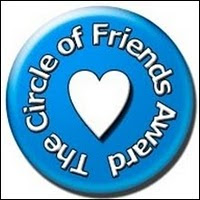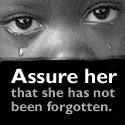I enjoy being transported to a different time and place when I read a novel. I was transported to a real and a ‘virtual’ place in ‘The God Hater ’ by Bill Myers.
’ by Bill Myers.
Here is the synopsis of this riveting novel :
:
A cranky, atheistic philosophy professor loves to shred the faith of incoming freshmen. He is chosen by a group of scientists to create a philosophy for a computer-generated world exactly like ours. Much to his frustration every model he introduces—from Darwinism, to Existentialism, to Relativism, to Buddhism—fails. The only way to preserve the computer world is to introduce laws from outside their system through a Law Giver. Of course this goes against everything he's ever believed, and he hates it. But even that doesn't completely work because the citizens of that world become legalists and completely miss the spirit behind the Law. The only way to save them is to create a computer character like himself to personally live and explain it. He does. So now there are two of him—the one in our world and the one in the computer world. Unfortunately a rival has introduced a virus into the computer world. Things grow worse until our computer-world professor sees the only way to save his world is to personally absorb the virus and the penalty for breaking the Law. Of course, it's clear to all, including our real-world professor, that this act of selfless love has become a reenactment of the Gospel. It is the only possible choice to save their computer world and, as he finally understands, our own.
Here is the biography of this author:
Bill Myers holds a degree in Theater Arts from the University of Washington and an honorary doctorate from the Theological Institute of Nimes, France, where he taught. As author/screenwriter/director his work has won over 50 national and international awards, including the C.S. Lewis Honor Award. His DVDs and books have sold 8 million copies. His children's DVD and book series, McGee and Me, has sold 4.5 million copies, has won 40 Gold and Platinum awards, and has been aired on ABC as well as in 80 countries. His My Life As… series has sold 2.1 million copies. He has written, directed, and done voice work for Focus on the Family's Adventures in Odyssey radio series and is the voice of Jesus in Zondervan's NIV Audio Bible. As an author, nearly all of his children's series have made the bestseller list, as well as 7 of his adult novels. He has been interviewed for Good Morning America and ABC Nightly News. Several of his novels are currently under option for motion pictures, including Blood of Heaven , Threshold
, Threshold , Eli
, Eli , Fire of Heaven
, Fire of Heaven , When the Last Leaf Falls
, When the Last Leaf Falls , and Forbidden Doors
, and Forbidden Doors . The motion picture, The Wager
. The motion picture, The Wager , starring Randy Travis and based on Myers's novel by the same name, was released in 2009.
, starring Randy Travis and based on Myers's novel by the same name, was released in 2009.
The Author’s Note prepares his readers for this story:
The following is fiction.
I’ve tried to make the science and theology reasonably accurate. But just as I’m sure I’ve made scientific blunders in the writing, I’m equally positive I’ve stepped on theological land mines. Then there’s that whole pesky issue of allegories. They only capture pieces of truth, and are way too slippery to do much more. So, just as I would encourage you not to base your science upon this science, the same should go for your theology. As I said in my novel Eli, which in many ways is the flip side of this project, if something doesn’t sound right or sticks in your throat, don’t waste your time reading this. Go to the original Source and see what it says. (p. IX)
The main characters in this interesting novel are Dr. Nicholas Mackenzie, a philosophy professor at The University of California – Santa Barbara, and his colleague, Dr. Annie Brooks. Another main character is Dr. Mackenzie’s brother, Travis, who is a genius in the field of Computer Science.
are Dr. Nicholas Mackenzie, a philosophy professor at The University of California – Santa Barbara, and his colleague, Dr. Annie Brooks. Another main character is Dr. Mackenzie’s brother, Travis, who is a genius in the field of Computer Science.
Annie is a woman of faith; she has difficulty with the strident atheism of her colleague. Here are her thoughts on a debate that Dr. Mackenzie engaged in on a TV program called God Talk:
He’d done it again. Her colleague and friend – if Dr. Nicholas Mackenzie could be said to have any friends – had shredded another person of faith. This time a Christian, some megachurch pastor hawking his latest book. Next time it could just as easily be a Jew or Muslim or Buddhist. The point was that Nicholas hated religion. And heaven help anyone who tried to defend it. (p. 6)
That sounds like the description of many professors in our public universities.
Dr. Mackenzie shares the reason why he likes to appear on that program:
…Nicholas was a frequent guest on God Talk. Despite his reclusive lifestyle, not to mention his general disdain for people, he always accepted the producer’s invitation. Few things gave him more pleasure than exposing toxic nature of religion. Besides, these outings provided a nice change of pace. Instead of the usual stripping away of naïve college students’ faith in his classroom, the TV guests occasionally provided a challenge.
Occasionally. (p. 7)
We also get a glimpse into his world view:
He had abandoned society long ago. Or rather, it had abandoned him. Not that there was any love lost. Today’s culture was an intellectual wasteland - a world of prechewed ideas, politically correct causes, sound-bite news coverage, and novels that were nothing more than comic books. (He’d given up on movies and television long ago.) Why waste his time on such pabulum when he could surround himself with Sartre, Hegel, Kierkegaard, Nietzsche – men whose work would provide more meaningful companionship in one evening than most people could in a lifetime? (p. 8)
Dr. Brooks, a biology professor, shared a revelation with her Molecular Biology 201 students that surprised them:
“Now, for nearly fifty years, origin-of-life experts have pretty much rejected the concept of life forming in our planet by random chance.”
She turned back to the class. Those who were awake frowned as if they’d misheard. Good, she’d finally gotten their attention. In fact, a young Asian near the center of the auditorium actually raised her hand.
“Yes?” Annie nodded.
“Is that true?”
“Absolutely. And it’s been true since the 1960s. Every origin-of-life expert worth his or her salt has rejected the concept that life formed by random chance.”
The girl’s frown deepened and Annie answered the unasked question.
“You didn’t learn this in your high school biology class because it’s an inconvenient truth.” With a smile she added, “One of our dirty little secrets. But if you plan to pursue biology and want to play with the big kids, it’s a paradox you’ll have to accept.” (p.22)
She then went on to share scientific evidence to explain and support her assertions.
Annie had a precocious young son named Russell, nicknamed Rusty. We learn what brought her and Dr. Mackenzie together. We learn she became pregnant outside of marriage, and was abandoned by most:
And who helped her through those next months? Certainly not her friends, not from either side of the moral aisle. After all, she was a college professor, an advocate of the faith, a role model to young women. So, while her nonreligious friends secretly gloated, her religious ones subtly evaporated. It was only Dr. Nicholas Mackenzie, the curmudgeon she publicly debated on campus, who stayed at her side. Never once did he point out her hypocrisy. Never once did he do anything but offer help. A surprising paradox, for the crank that both faculty and students went out of their way to avoid. (p. 29)
This book is full of interesting computing and scientific data – but nothing that is too hard for the amateur to understand. Here is a fascinating section on how they created the virtual community that is based on our society:
“What’s in here?” she [Annie] asked.
“Nanobots.”
“Miniature robots,” Annie said, looking at the cylinder. “People have been hypothesizing about their use for years.”
“Yes. Each is the size of a single human blood cell. When injected into the circulatory system, they perform whatever task we design them for. They can track down and destroy disease, repair tissue---”
“But in the future,” Annie corrected. “Sometime in the future.”
Agapoff shook her head. “As early as 2003 a researcher from the University of Illinois designed a batch he injected into rats to cure their type one diabetes.” (p. 107)
They used that technology to create a virtual person in their new computer community.
In the virtual community, the individuals – who had free will, just as we do – fell victim to the same temptations found in our world, included unlimited knowledge for any and all takers, aka the Internet:
Nicholas turned to Travis.“The rest of the community was drawn to this?”
“Like moths to a flame.”
He pushed up his glasses and scowled. “Our instructions weren’t good enough for them.”
Travis shook his head. “Now everybody wants to know why. Why they have to follow authority, why they have to treat each other as sacred, why not this way, why not that way. Now they all want to experiment on their own, to do it their own way.”
Annie softly quoted, “Each doing whatever is right in their own eyes.”
“Regardless of the long-term consequences?” Nicholas asked.
“That’s right.”
“So, we’ve come full circle.”
“Short-term gratification equals selfish ambition equals self-destruction,” Travis said. “Just like old times.” (pp. 136-137)
This book uses the life of Jesus Christ and many of its elements in an allegorical fashion. Included in different variations are the Sermon on the Mount, the woman caught in adultery, the Pharisees and Sadducees, Jesus’ trial before the Sanhedrin, spiritual warfare, sacrificial death and resurrection, etc...
To be honest, when I first read the title of this novel – ‘The God Hater ’ – I was taken aback. How can a title like that be considered a Christian novel? After reading it, my opinion is that ‘you can’t judge a book by its title’! I think this presents the Gospel of Jesus Christ in an amazingly interesting way. It will reach believers and non-believers alike; it puts a spin on the Good News that will resonate with the scientifically/technically inclined. I was pleasantly surprised! This is the first novel I have read from Bill Myers, and it makes me want to read more from his creative and prolific mind. I give this book my highest recommendation.
’ – I was taken aback. How can a title like that be considered a Christian novel? After reading it, my opinion is that ‘you can’t judge a book by its title’! I think this presents the Gospel of Jesus Christ in an amazingly interesting way. It will reach believers and non-believers alike; it puts a spin on the Good News that will resonate with the scientifically/technically inclined. I was pleasantly surprised! This is the first novel I have read from Bill Myers, and it makes me want to read more from his creative and prolific mind. I give this book my highest recommendation.
You can order this book here .
.
This book was published by Howard Book and provided by the CSFF Blog Tour; I am happy to be participating with these other bloggers.




























.jpg)







3 comments:
Wow, Andrea, you went to a lot of work to dig out all these quotes to illustrate or explain what you were saying.
I'm glad you liked the book. Definitely God honoring. (And yes, the title gave me pause too).
Becky
This sounds like an incredibly interesting book. I'm not generally a reader of science fiction but have been looking for good fiction that explains spiritual truths well. Do you suppose, despite my lack of interest in science fiction, that I would be able to enjoy this book?
Great blog by the way, I just came across it, I'll definitely be back!
Hi, Chuck! Thanks for stopping by@ Science Fiction is not my favorite genre, but I really liked this book. Other recommendations are 'The Last Christian' by David Gregory and 'The Topkapi Secrets'by Terry Kelhawk. Please feel to browse the blog for more ideas! And please consider ordering from Amazon through one of my links; this poor blogger will appreciate it!
Thanks for the kind words; I'm glad you discovered my blog! Please follow me and tell your friends and family! : )
Post a Comment